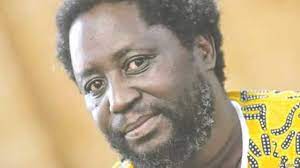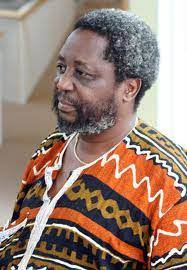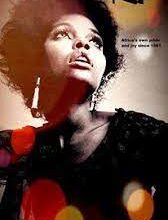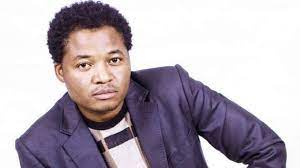Chengerai Hove: The writer who bleeds, burns and despairs with the Voiceless

Chenjerai Hove

By Tapfuma Machakaire 21/11/2022
A poet is a person who possesses special powers of imagination and expression of literary work. In Poetry, distinctive style and rhythm is achieved through intensity in the expression of feelings and ideas. The flavour of a poet’s products is a direct reflection of society’s response, in either appreciation or disdain to activities around a given people. Poets have the ability to put pen to paper and often speak for the voiceless in society.
Before his death at the age of 59 in July 2015,Chenjerai, Hove, a poet, novelist and essayist had not only presented the ideal qualities of a poet, but went on to demonstrate his exceptional ability, zeal and, above all, courage, to say it out through poetry.
In October 2011 the Journal of Black Studies wrote that along with the late Dambudzo Marechera, the late Yvonne Vera and Charles Mungoshi, Hove was one of the founding figures of modern Zimbabwean literature. They constitute a group of writers whose work dealt with the societies of both pre and post-independence.
Hove’s early literary works focused on the war of liberation. He reminisced about the war’s true heroes, while at the same time expressing a sense of betrayal for the fallen heroes. Hove felt the leaders were not living up to the ideals of the war, and cautions the people not to be complacent.
His poetry is amply summarised by Maurice Vambe, a Zimbabwean critic and literary theoretician who said: “Chenjerai Hove’s poetry cries out against whatever attempts to diminish the personhood or humanity of ordinary men and women. The creative canvas that engages his poetic imagination is colonialism, ideologies of African patriarchy and, more seriously, the impact of the policies of domestic tyrants on the lives of ordinary people.”
Hove’s persona is espoused by his literary works which came under the spotlight following his death in exile. The depth in his messages had created grounds for discourse over what the man really stood for.
While some may have appreciated his vivid portrayal of the evils of the colonial era and the harsh realities of the impact of the war on the ordinary man and woman, the same people may not have been amused by the equally vicious attack on the weaknesses of the regime that emerged upon the attainment of uhuru.
One can imagine his mood as he set down to write about issues in which he would never forgive the frailties and egoistic characteristics of mankind.
In Up in Arms–published in 1982, described as one of most enduring poetry collections, Hove lashes out at colonial injustice. He shows greater sensitivity to the plight of men living under the colonial regime in Rhodesia.
In the moving piece A BOY, he reveals the humiliation and embarrassment of an elderly African man who is denied respect by his white bosses who call him a boy. He speaks of the “milk-plastered lips” of “weak-boned madams” who negates the manhood of the African farm worker. The white employer’s family refuses to see that the worker whom they call boy is a father and husband entitled to respect as head of a family.
Hove speaks of the process of restoring the dignity of African men and women which took tortuous paths. He digs into the unsurmountable burden of surviving the demands of the war, a problem that was faced by both black and white women. In the poems a war-time wife and a war-torn wife Hove depicts war as an evil that deprives people of the ability to lead a normal life as observed on how the war affected both sides of the racial divide in Rhodesia.
He goes on to lament how the same women who suffered during the war are side-lined by the new administration. It is no wonder that in a review of Hove’s works stinging extracts began to emerge on the post war developments. “The way we had to endure the pain of war and yet, at Independence, remain unheralded by stately choirs, forgotten by national anthem makers. It is the cunning, heartless charlatans.”
Among those who wrote about Hove soon after his death was Trevor Grundy a well-known journalist and author who worked in various parts of Africa. Grundy described Hove as a voice for the voiceless in Robert Mugabe’s Zimbabwe. He said the death of Chenjerai Hove at the relatively early age of 61 in Oslo, Norway had robbed Zimbabwe of one of its great poets and novelists. He argued that Hove had been a man of principle during the course of lonely 14-years in exile in America, France and Norway.
Wilf Mbanga, a Zimbabwean and editor of the UK-based publication, The Zimbabwean, described Hove as a national treasure.
“It is such a tragedy that one of Zimbabwe’s best known writers was hounded out of his country and forced to live and die in exile. He was never afraid to speak the truth,”said Mbanga.
Hove was a regular contributor of articles to the Zimbabwean.
At a literary seminar in 1980, Hove told large audiences that writers of his generation and background had heavy jobs before them. The burden of persuading a largely indifferent world to listen to Africa’s cries of helplessness. He said, “As writers,we have as well to turn around and be publicists for the sake of the survival of our people.”
Author Flora Veit-Wild,a German literary academic, Professor of African Literatures and Cultures at Humboldt University, Berlin says Chenjerai Hove was born on February 9, 1956 and was the son of a peasant farmer near Zvishavane in the Midlands province of Zimbabwe.
At the age of 10 Chenjerai moved with his parents to Kadoma, a small town west of Harare.
“He must have been spotted by some discerning Jesuit priest who hand-picked him to attend the prestigious Kutama Mission School in Mashonaland West province.It was there that Hove was converted from being Lutheran to a Catholic.” He also went to Marist Brothers in Dete in Hwange district before he enrolled for teacher training at Gwelo Teachers College.After graduating in 1977, he worked as a teacher until 1981.He studied for a BA in English Language and Literature at the University of Zimbabwe and also did some studies with a South African University.
As a teacher in war-torn rural Rhodesia, Hove came face to face with the victims of atrocities committed during the Second Chimurenga.
In 1989 Hove published Harvest of Thorns which has described as an earnest and picturesque analysis of historic events in Zimbabwe. The foreword read: “When you are with them you see their problems, you attend a funeral of some who have been massacred and so on. And then you begin to understand what it is to be without a gun between two people who have guns.”
Hove worked for Mambo Press the Roman Catholic publishing house in the city of Gweru from 1981-1985. He Later joined the Zimbabwe Publishing House where he worked from 1985-1987.
He was the inaugural president of the Zimbabwe Writers Union in 1984 as well as a founding board member of the Zimbabwe Human Rights Association in 1990.
In 1989 won the prestigious Noma Award for his novel Bones in which he told the story of Marita, the poor, illiterate farm labourer who sets out for the city to search for her son who left with the freedom fighters and never returned. Bones received glowing reviews and was translated into several languagesincluding Japanese, German, and Dutch.Bones was followed by two other novels Shadows in 1991 and Ancestors in 1996.
Veit–Wild describes Hove as the writer who bleeds, burns and despairs with victims of both power and circumstance.
Said Flora-Wild:” Hove seems to have met certain expectations that critics and international readers have of the modern African tale.
It is argued that it was Hove’s embrace of traditional African values that appealed to liberal book buyers in London and elsewhere.
An obituary of Hove in The Times of 20 July, 2015 said that at one point Hove became number 17 on a secret police list of “enemies of the state,” He counted several apparent attempts on his life.“His manuscripts were taken away. His computers were wrecked. His family was threatened. His few remaining friends told him he would be killed unless he left the country.”
Hove fled the country in 2001 with the help of the International Parliament of Writers, leaving behind his wife, Thecla. And six children.He started a new life, moving first to Rambouillet in France.
He later moved to Stavanger, Norway, where he was a guest writer through the International Cities of Refuge Network, an organization that aids endangered and exiled writers.
In the collection Rainbows in the Dust, the distinction between poet as messenger and poet as political activist is collapsed into one. The new élites are portrayed as deriving their power to rule from coercion and not consent.
Hove’s literary style was summed up by Charles Mungoshi who wrote “Just as one cannot escape the terrible truth of death, or just as a barefoot herd boy cannot avoid the grass-hidden thorn in his way, so it is with Hove’s poetry. It speaks a truth that a historian or a politician or an anthropologist may not know the edge of, but Hove is not an explainer, an arbiter, or a statistician. His poetry addresses itself to the human heart. Because it speaks to the heart, its language is concerned with evoking feeling, recreating how it was or how it is, but never explaining why. His poetry happens, naturally.”
Chenjerai is a warning statement in Shona language which means be careful. Could there have been a literal meaning in Chenerai’s name to the inhabitants of the land of milk and honey, ZIMBABWE?



